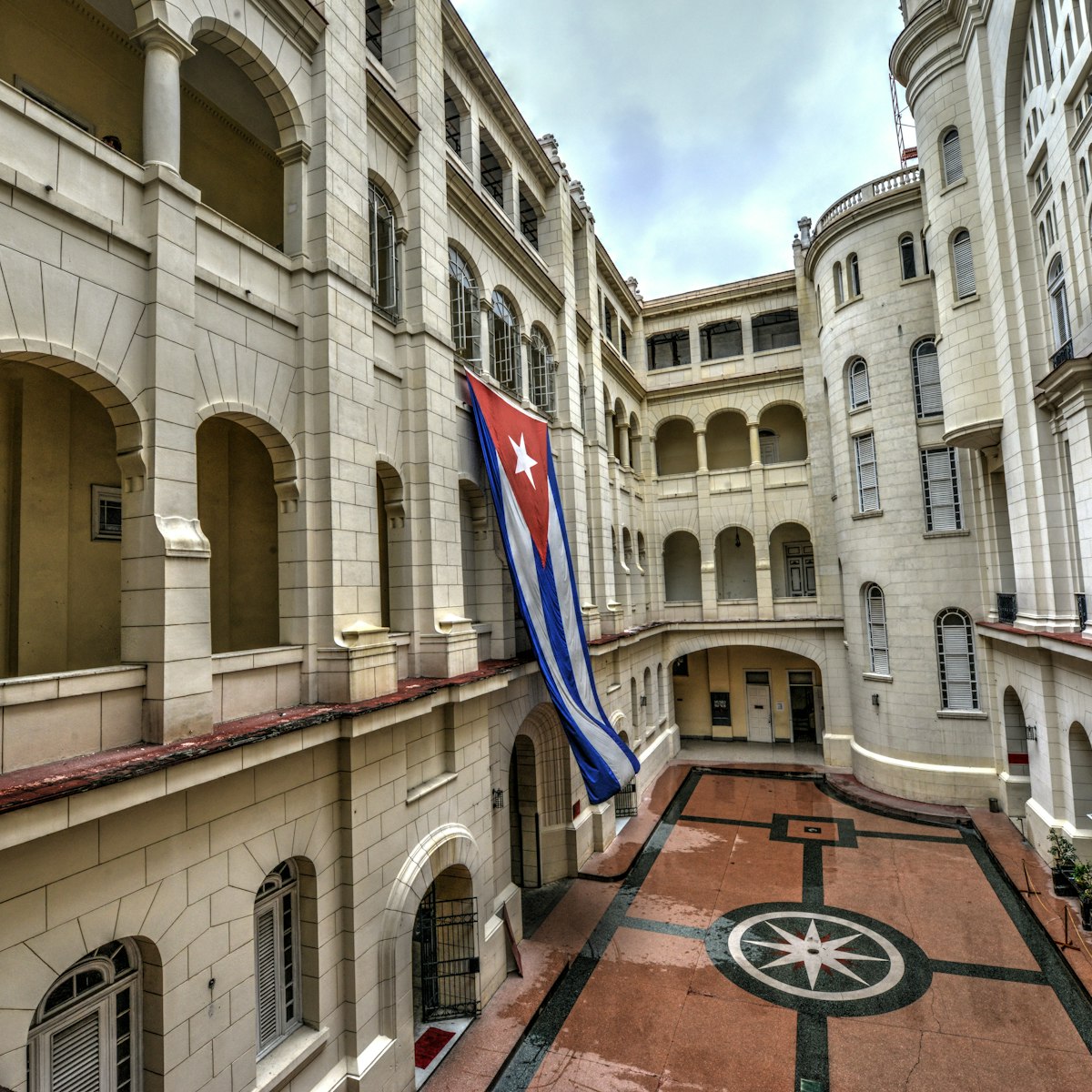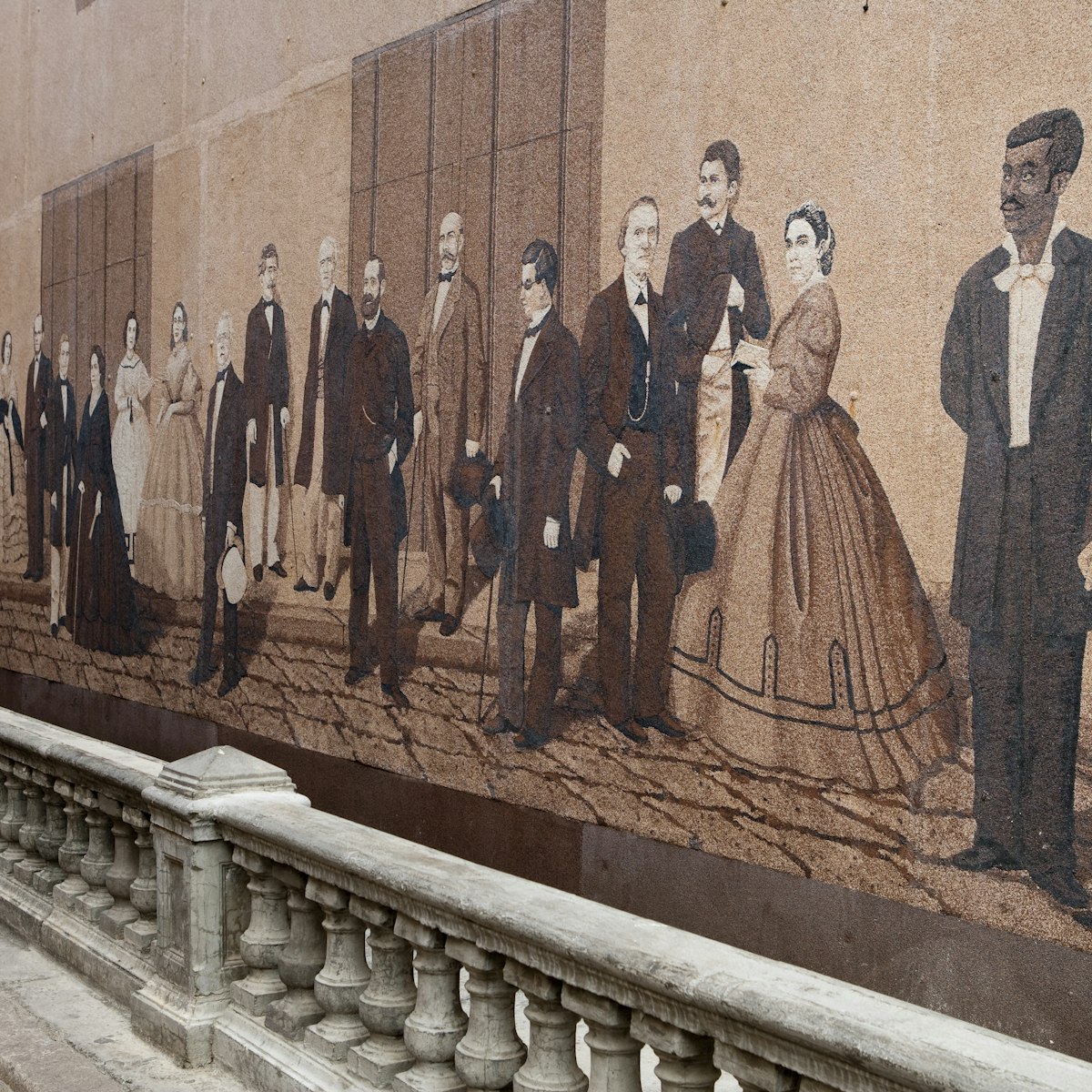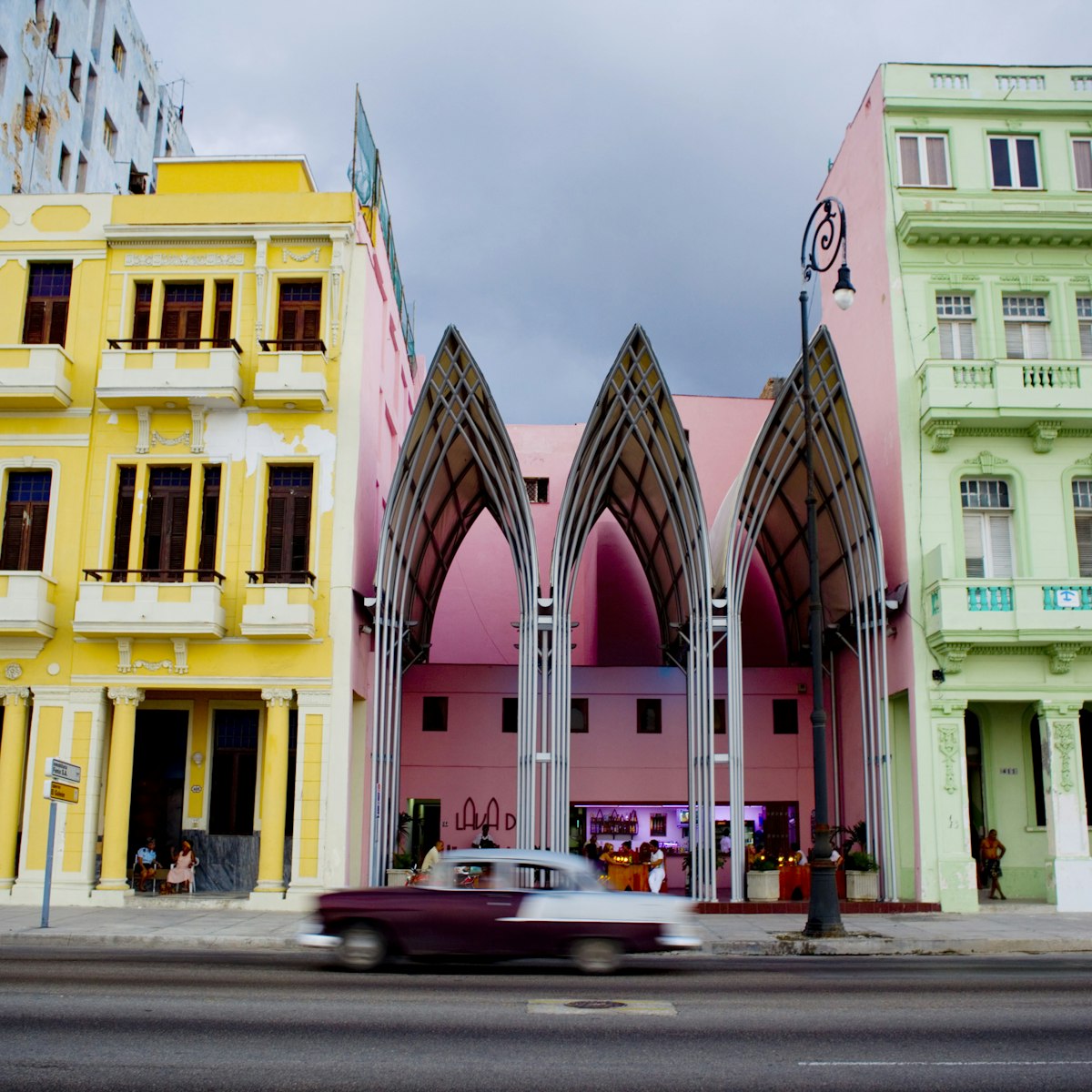One of the world’s more surreal Chinatowns, Havana’s Barrio Chino is notable for its lack of Chinese residents – most Chinese people left Havana as soon as a newly inaugurated Fidel Castro uttered the word socialismo in the early 1960s. Nevertheless, it’s worth a wander for its novelty and its handful of decent restaurants.
The first Chinese arrived on the island as contract laborers in the late 1840s following the decline of the transatlantic slave trade. By the 1920s Havana's Chinatown had become the biggest Asian neighborhood in Latin America, a bustling hub of industry that spawned laundries, pharmacies, theaters and grocery stores. The slide began in the early 1960s, when thousands of business-minded Chinese relocated to the US. Recognizing the tourist potential of the area in the 1990s, the Cuban government invested in rejuvenating the district's historical character with bilingual street signs, a large pagoda-shaped arch at the entrance to Calle Dragones, and incentives for local Chinese businesspeople to promote restaurants. Today most of the action centers on narrow Calle Cuchillo and its surrounding streets.







